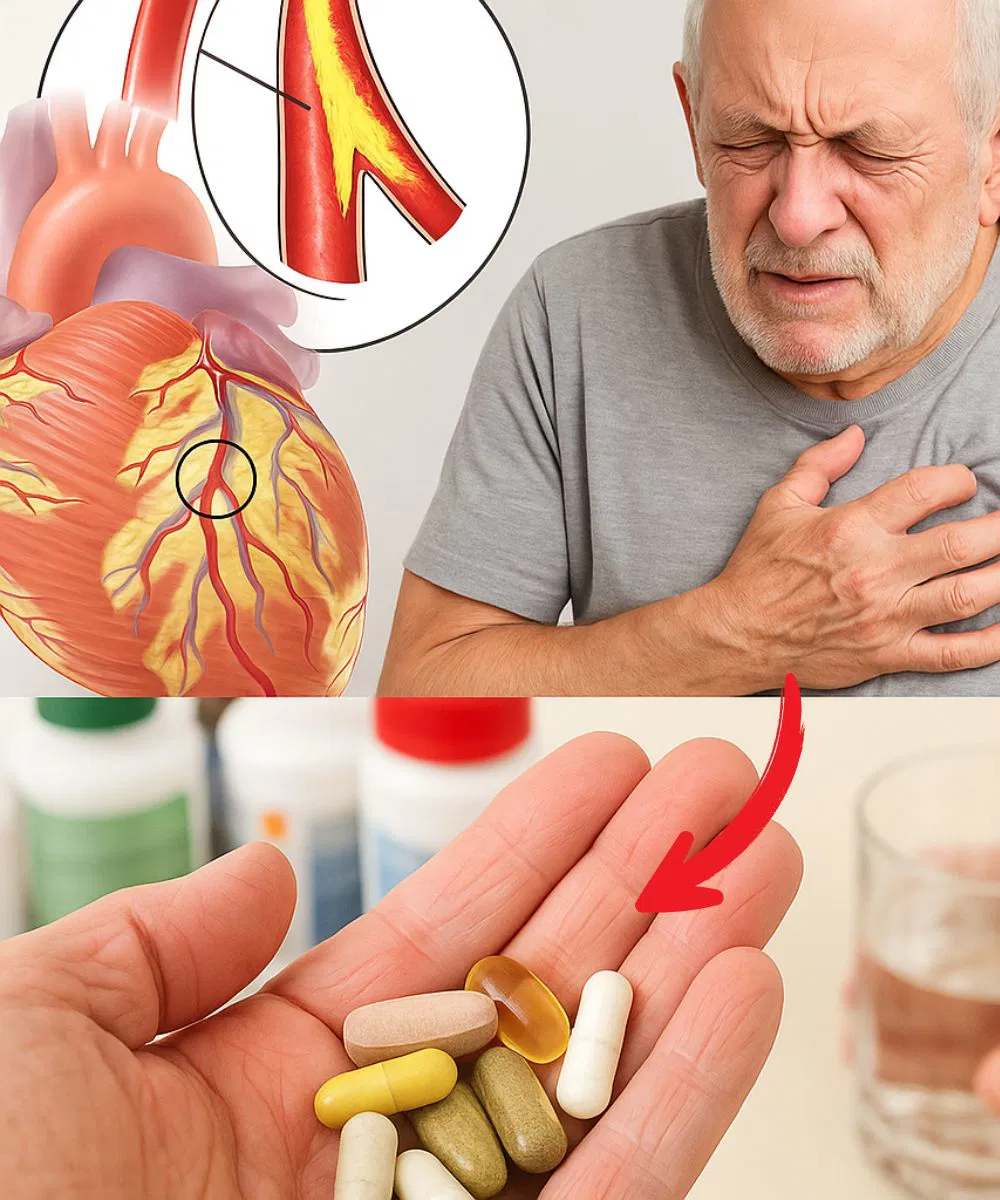As we grow older, our nutritional needs change, and maintaining good health becomes increasingly important. While supplements can be useful for bridging dietary gaps, they are not one-size-fits-all, especially for individuals over the age of 50.
 In fact, some widely used supplements can be harmful to older adults, either by causing side effects or interacting negatively with medications. Below are four supplements that pose particular risks for people over 50, and why they should be used with caution.
In fact, some widely used supplements can be harmful to older adults, either by causing side effects or interacting negatively with medications. Below are four supplements that pose particular risks for people over 50, and why they should be used with caution.
1. High-Dose Vitamin A
Vitamin A is vital for immune support, vision, and skin health, but consuming it in large amounts can be dangerous for older adults. As we age, the body becomes less efficient at processing this vitamin, increasing the risk of toxicity.
Potential Risks:
Liver Damage: Vitamin A can accumulate in the liver over time, potentially leading to liver toxicity.
Bone Health Issues: Elevated levels have been associated with reduced bone density and a higher risk of fractures.
Toxicity Symptoms: Overconsumption can result in nausea, dizziness, headaches, and hair thinning.
Advice:
Stay within the recommended daily intake and avoid high-dose vitamin A supplements unless advised by a medical professional.
2. Iron Supplements
Iron is crucial for oxygen transport in the blood, but too much of it can cause harm, particularly in older adults who are more prone to iron overload.
Potential Risks:
Hemochromatosis: This condition occurs when excess iron accumulates in organs like the heart and liver, leading to long-term damage.
Heart Disease Risk: Elevated iron levels have been linked to a greater likelihood of cardiovascular issues.
Digestive Problems: Iron supplements can cause constipation, nausea, and stomach cramps.
Advice:
Only take iron supplements if your doctor has diagnosed a deficiency.
3. St. John’s Wort
This herbal supplement is often used for mood support, but it comes with serious risks for older individuals, especially those on multiple medications.
Potential Risks:
Drug Interactions: It can interfere with a variety of prescriptions, including antidepressants and blood pressure medications.
Photosensitivity: St. John’s Wort can increase sensitivity to sunlight, raising the risk of skin damage.
Nutrient Interference: Long-term use may disrupt the absorption of key nutrients like folate and vitamin B12.
Advice:
Speak with a doctor before using this herb, especially if you are taking any medication.
4. Excess Calcium
Calcium supports bone strength, but too much, particularly in supplement form, can be harmful after age 50.
Potential Risks:
Kidney Stones: High calcium intake increases the likelihood of stone formation.
Heart Concerns: Excessive calcium has been associated with heart disease and arterial calcification.
Digestive Discomfort: Too much can lead to constipation and related issues.
Advice:
Get calcium primarily through food sources like dairy or leafy greens, and consult your doctor before using supplements.
Smart Supplement Habits for Older Adults
Consult Your Healthcare Provider: Always get professional guidance before adding any new supplement.
Focus on Nutrition First: Supplements should enhance, not replace, a balanced diet.
Monitor Interactions: Keep your doctor informed about all supplements you’re taking to avoid medication conflicts.
Follow Recommended Doses: Avoid assuming that more is better—stick to safe, proven dosages.
In Summary
While supplements can help support health as we age, some, like high-dose vitamin A, iron, St. John’s Wort, and excess calcium, can pose serious risks for those over 50. Making informed decisions and consulting with a healthcare provider is the best way to ensure safe and effective supplementation.


